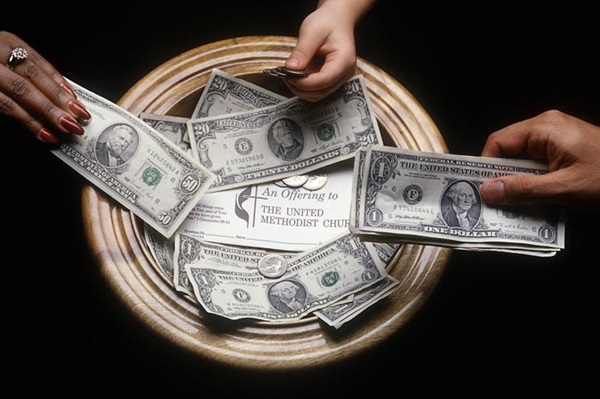By most accounts, it is the third rail of being a local church pastor: touch it, and you'll get zapped.
"It" is the long-standing question, "Should a pastor know how much a church member gives?"
In late 2015, the Connectional Giving Team – staff from United Methodist Communications that "works to increase visibility, awareness and financial support for the connectional ministries of The United Methodist Church" – did a survey where 372 people responded to that question.
The results were clear as mud.
"I am a firm believer that this is something that is between the member and God," said Carl Sudduth, supply pastor at Gainseville United Methodist Church in Livingston, Alabama. "If the pastor knows too much about someone's finances it might affect how he ministers to that family."
 |
| Courtesy Photo. |
"The church is the only nonprofit on the planet that does not want its leader to know everything he or she can about how the nonprofit functions and pays its bills," writes Stewardship consultant the Rev. Clif Christopher in Whose Offering Plate Is It? (Abingdon Press).
In the book, he offers a plan for moving congregations away from the practice and writes, "Be sure that your leaders understand that your knowledge of giving is a spiritual diagnostic tool that you must have to be effective."
Ultimately, the best way to foster a culture of greater transparency around giving is to talk about it more, notes Ann A. Michel, associate director of the Lewis Center and lecturer in church leadership at Wesley Theological Seminary in Washington, D.C.
"Pastors and other key leaders can model the way by openly discussing how much they give and why," Michel said in an article at www.churchleadership.com. "This sharing should be done in thoughtful and appropriate ways, of course.
Changes in a person's tithe, says Frank Robert, associate director of the Mid-Atlantic United Methodist Foundation, could alert the pastor to other, perhaps more serious, issues in a person's life.
Robert understands that people don't want to flaunt their giving and that that is something Jesus taught. At the same time, keeping a person's giving "just between them and God" isn't very effective, he said.
"You don't take your money and just throw it directly up to heaven," Robert said. "It doesn't work that way. When you give, someone in the church is counting your money; you're claiming it off your taxes."
Underlying all this, Robert stressed, is that giving is a spiritual discipline; something that reflects one's relationship with God. In a day and age when giving to charitable causes is rising, to an estimated $373.25 billion in 2015, according to a report on Giving USA (givingusa.org), donations to religious organizations have stayed flat for the last 10 years.
"We need to teach the next generation about giving," Robert said. "The older generation understands it as a spiritual practice, but unless we teach this to the next generation, we're going to lose it."
Erik Alsgaard, editor of UMConnection official newspaper, Baltimore-Washington AC
United Methodist Church Giving is about people working together to accomplish something bigger than themselves. In so doing, we effect change around the world, all in the name of Jesus Christ. To read stories about the generosity of United Methodists click here.





